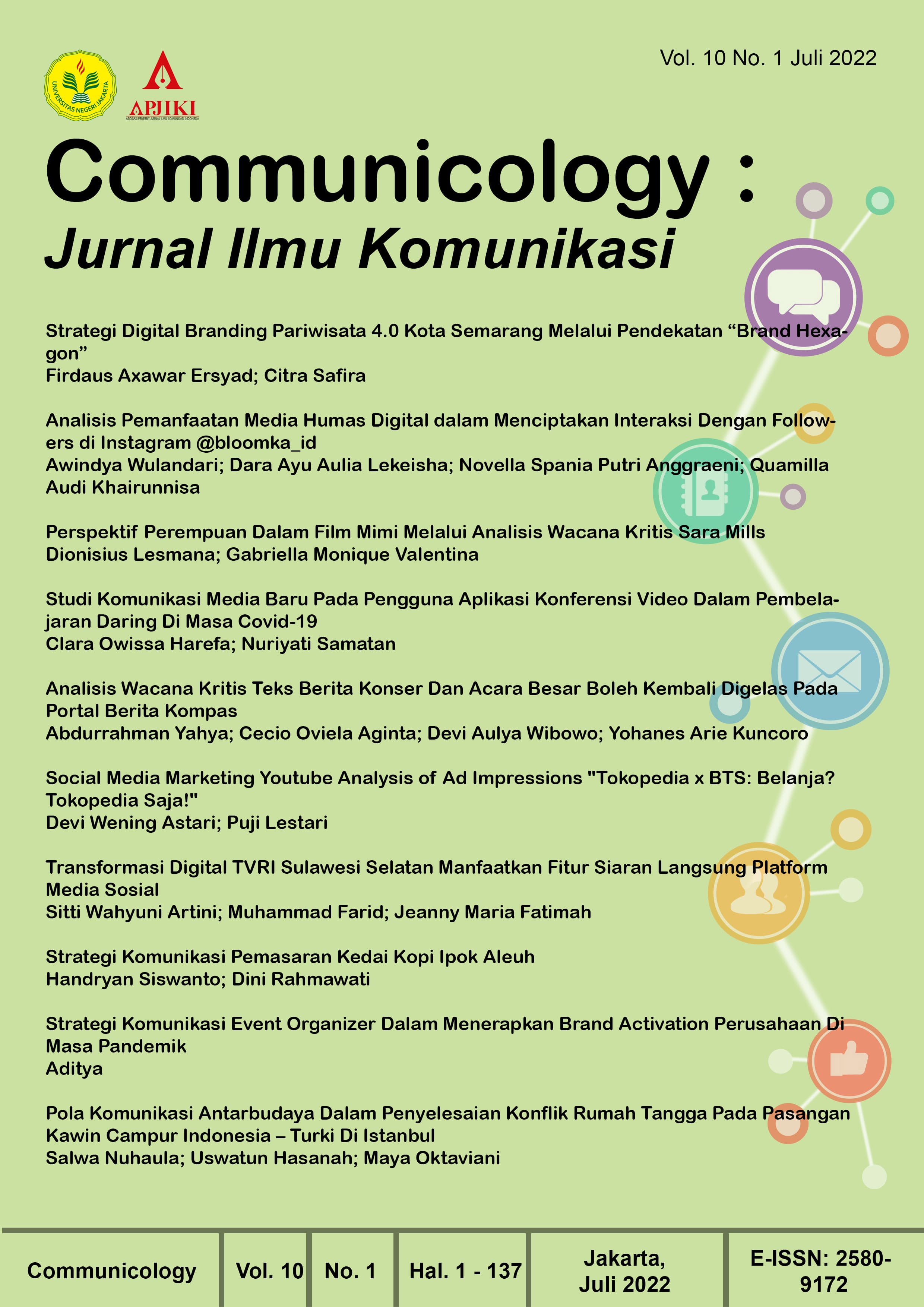Studi Komunikasi Media Baru Pada Pengguna Aplikasi Konferensi Video Dalam Pembelajaran Daring Di Masa Covid-19
DOI:
https://doi.org/10.21009/COMMUNICOLOGY.10.10.2022Abstract
The occurrence of the Covid-19 case that entered Indonesia in March 2020 caused community activities that are usually carried out from outside the home such as going to school to be carried out indoors to anticipate the spread of the virus. So the government issued a warrant to implement Distance Learning (PJJ) from home. One of them is Gunadarma University by using new media, namely video conferencing as an intermediary medium between lecturers and students. This study aims to determine the experiences of Gunadarma University students in using video conferencing and to find out the supporting and inhibiting factors in using video conferencing applications in learning activities for students. This type of research is descriptive qualitative using the phenomenological paradigm. By using uses and gratification theory, cognitive learning theory, and new media. The author uses the technique of observation, interviews, and documentation. The results of this study explain that students get new experiences in terms of the learning process by using video conferencing and there are supporting factors in it such as it is easier to take classes anytime anywhere and the inhibiting factors are unsupported devices, limited quota, and constrained network problems.
Keywords: New media, video conferencing, uses and gratification theory, cognitive learning theory
Downloads
Published
How to Cite
Issue
Section
License
Authors who publish with this Journal agree to the following terms:
- Author retain copyright and grant the journal right of first publication with the work simultaneously licensed under a creative commons attribution licensethat allow others to share the work within an acknowledgement of the work’s authorship and initial publication of this journal.
- Authors are able to enter into separate, additional contractual arrangementfor the non-exclusive distribution of the journal’s published version of the work (e.g. acknowledgement of its initial publication in this journal).
- Authors are permitted and encouraged to post their work online(e.g. in institutional repositories or on their websites) prior to and during the submission process, as it can lead to productive exchanges, as well as earlier and greater citation of published works.
Users/public use of this website will be licensed to CC BY





